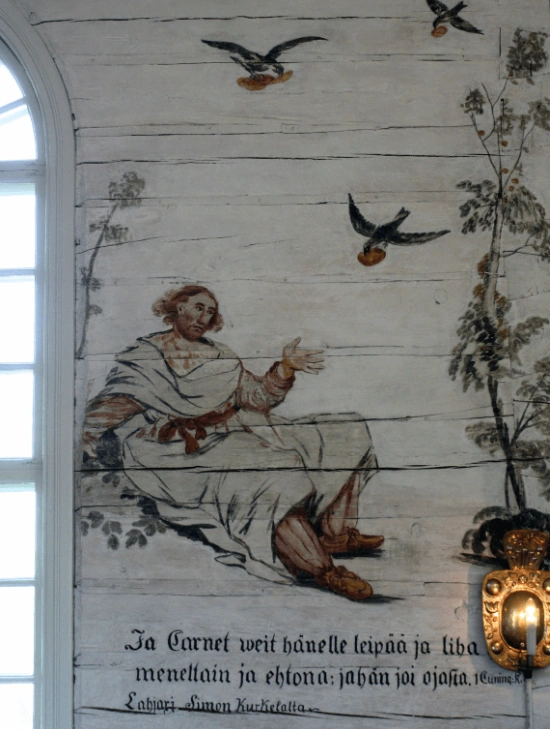2762. The origin of 'a horse' meaning the understanding part of the mind lies nowhere else than in representatives in the next life. Frequently there, in the world of spirits, horses which display great variety are seen, and also people seated on horses. And whenever they are seen the understanding is meant by them. Such representatives are of constant occurrence among spirits. It is because the horse is a representative of the understanding that when horses are mentioned in the Word the spirits and angels present with man know instantaneously that it is the understanding which is being spoken of. It is also why, when spirits from some other planet who have been endowed with intelligence and wisdom are raised up from the world of spirits into heaven, horses shining as though they consisted of fire appear, which I also have seen when those people were carried up.
[2] This experience has made clear to me what is meant by the fiery chariot and the fiery horses which Elisha saw when Elijah went up with the whirlwind into heaven, and what also by Elisha's shout at that time,
My father, my father, the chariot of Israel, and its riders. 2 Kings 2:11-12, and by the same spoken by Joash king of Israel to Elisha when the latter was dying,
My father, my father, the chariot of Israel, and its riders. 2 Kings 13:14.
In the Lord's Divine mercy it will be shown elsewhere that Elijah and Elisha represented the Lord as to the Word. That is to say, it will there be shown that the doctrine of love and charity drawn from the Word is meant by 'the fiery chariot', and the doctrine of faith deriving from these by 'the fiery horses'. The doctrine of faith is the same as an understanding of the Word as to its inner content, which is the internal sense.
[3] As regards chariots and horses being seen in heaven among spirits and angels, this is evident not only from the fact that they were seen by the prophets, such as by Zechariah (1:8-10; 6:1-7) and by others, but also by Elisha's servant, of whom the following is said in the Book of Kings,
Jehovah opened the eyes of Elisha's servant, and he saw; and behold the mountain was full of horses, and there were fiery chariots surrounding Elisha. 2 Kings 6:17.
Furthermore, where the intelligent and wise dwell in the world of spirits, chariots and horses are constantly making their appearance, the reason being, as has been stated, that chariots and horses represent the things that belong to wisdom and intelligence. People who have been awakened after death and are entering the next life see represented to them a young man seated on a horse, who then dismounts. The meaning of this is that before they can enter heaven they have to be furnished with cognitions of good and truth - see Volume One, in 187, 188. The fact that chariots and horses meant those things was fully known in the Ancient Church, as becomes clear also from the Book of Job, a book of the Ancient Church, where these words occur,
God has made him forget wisdom and given him no share in intelligence. After raising himself on high he laughs at the horse and its rider. Job 39:17-19.
[4] The meaning of 'a horse' as the understanding spread from the Ancient Church to the wise in surrounding regions, and even into Greece. As a consequence of this, when describing the sun, which meant love, 2441, 2495, they placed the god of their wisdom and intelligence there in the sun, and gave him a chariot and four fiery horses. And when they described the god of the sea - the sea meaning knowledge in general, 28, 2120 - they gave horses to him also. And when they described the upsurge of knowledge from the understanding they portrayed it as a flying horse which with its hoof broke open a fountain where the virgins who were the branches of knowledge dwelt. And by the Trojan horse nothing else was meant than a device of their understanding for destroying city walls. Even today, when the understanding is being described, it is quite usual, drawing on the custom received from those people of old, to portray the understanding as a flying horse or Pegasus, and to portray learning as a fountain. Yet scarcely anyone knows that 'a horse' in the mystical sense means the understanding, and 'a fountain' truth, let alone that those images with a spiritual meaning spread to the gentiles from the Ancient Church.







